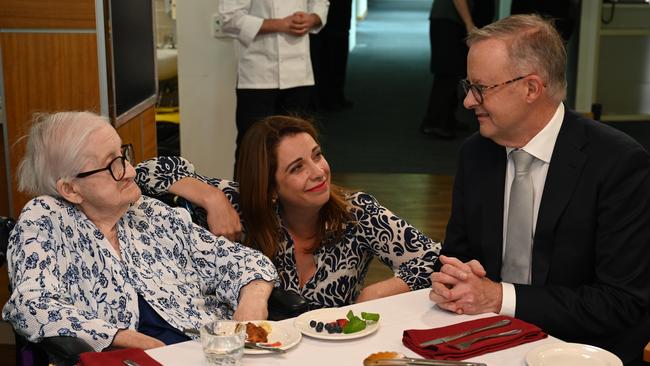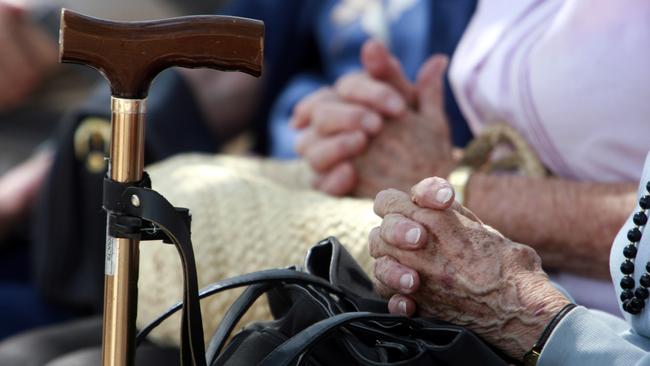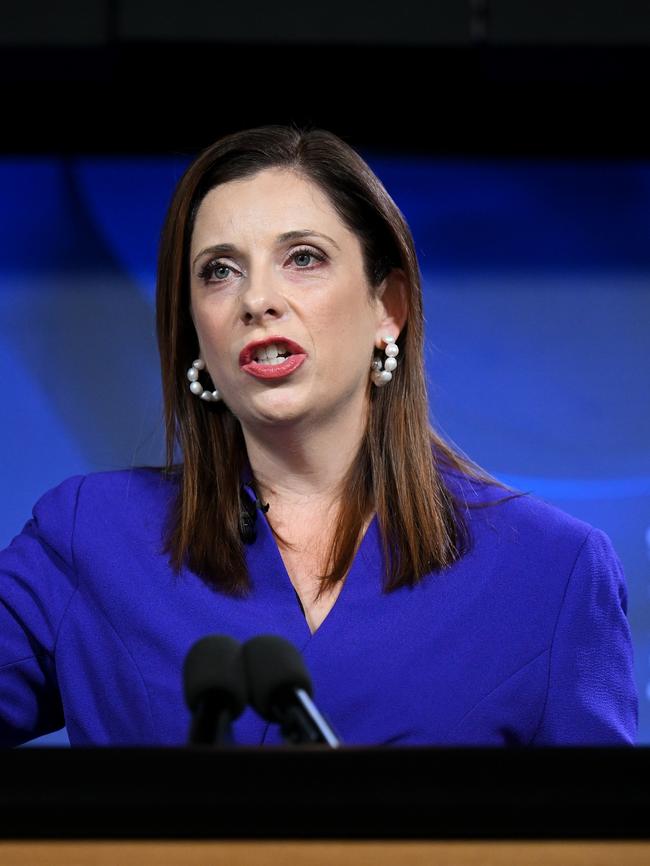Labor considers expert taskforce recommendation for elderly to fund more of their own aged care
Wealthy seniors would face higher charges for residential aged care and in-home support if the government adopts the recommendations of its expert review.

National
Don't miss out on the headlines from National. Followed categories will be added to My News.
Australian taxpayers will not be slugged with an extra levy to fund the nation’s aged care, but Labor will consider expert calls for the elderly to co-fund more of their own supports – either at home or in a residential facility – if they can afford to.
Making aged care fees fairer, simpler and more transparent, as well as ensuring older Australians only have to pay for the services they use are among a raft of recommendations handed to the federal government by a taskforce commissioned to investigate how to make the sector sustainable.
Currently the government funds about 75 per cent of residential aged care costs and 95 per cent of home care funding, which the taskforce said was not an “optimal or fair mix”.
“There is a strong case to increase participant co-contribution for those with the means to contribute, noting that there will always be a group of participants who need more government support,” the report due to be released on Tuesday said.
Over the next 40 years the number of Australians over the age of 80 is expected to triple to more than 3.5 million, which is expected to create a significant tax burden on the remaining working-age Australians.

In 2021-22 total government spending on aged care was 1.1 per cent of GDP or $24.8 billion, but this is forecast to increase to 2.5 per cent by 2062-63.
Despite the rising costs, the taskforce said a “specific tax or levy to fund aged care is not recommended” as it would be unfair to younger generations, especially as more Australians retire with sufficient super to pay for their own care in the future.

“Superannuation has been designed to support people to grow their wealth and fund the costs associated with retirement, including aged care,” the report said.
The taskforce said it would be “appropriate” for older people to make a “fair-co-contribution to the cost of their aged care based on their means,” including those who chose to receive care in their own home.
Demand for home care has been rising “sharply,” with on average an extra 44,000 people expected to access home supports each year for the next two decades.

But the taskforce said the current program was “not ready” to meet demand.
The report recommended the support at home program have “clearly defined service lists” for what is and isn’t going to be funded by taxpayers.
This should be based around principles where services included are those that are “essential or necessary” for “health, independence or safety in the home” as well as supports that are “reasonable based on assessment of value for money”. Aged Care Minister Anika Wells will take time to consider the government’s response to the recommendations.
“Australia’s aged care system is under stress,” she said.
“There is universal acceptance that something must change in order to ensure all Australians can age with the dignity, safety and high-quality care they deserve.”





